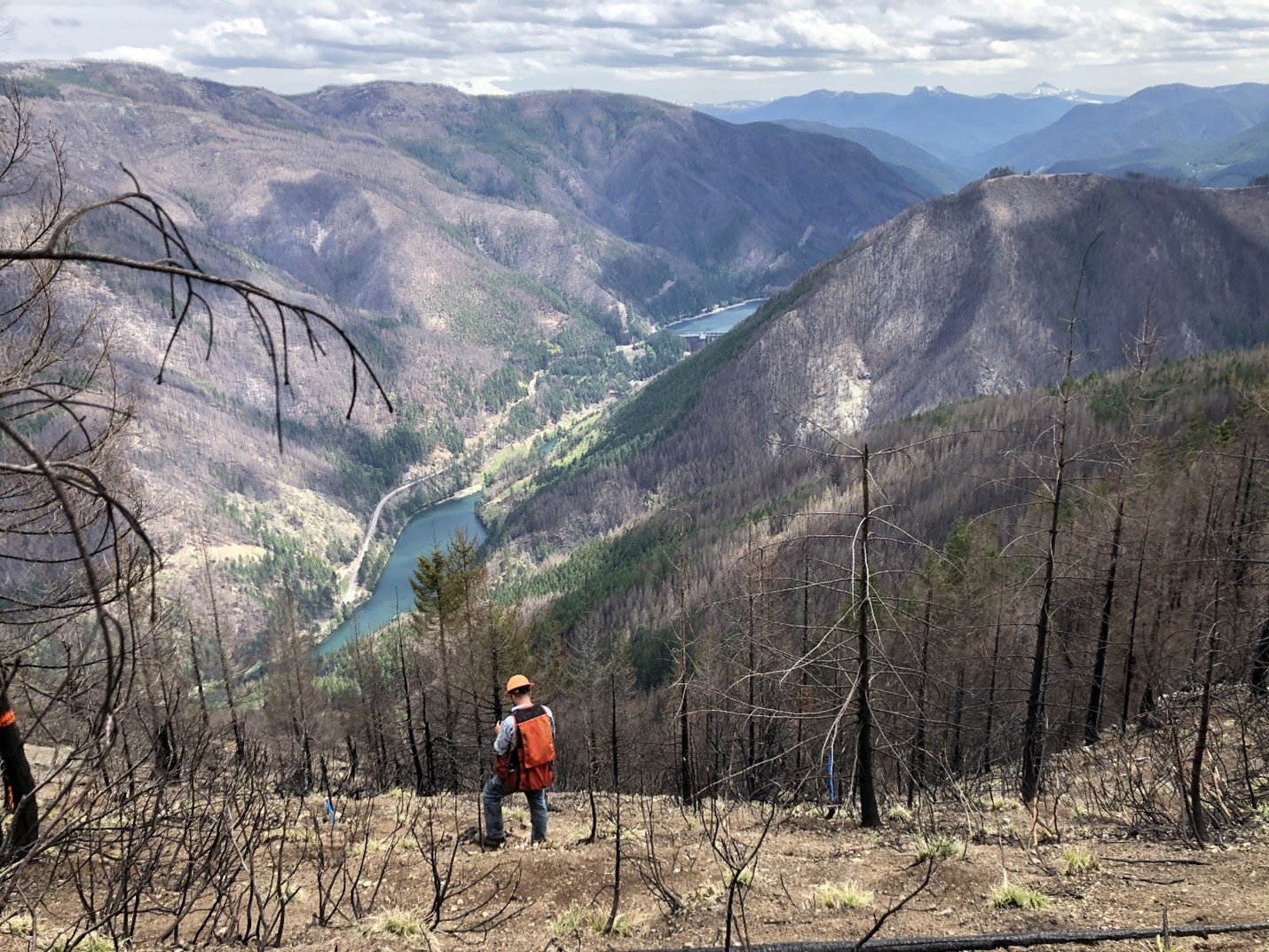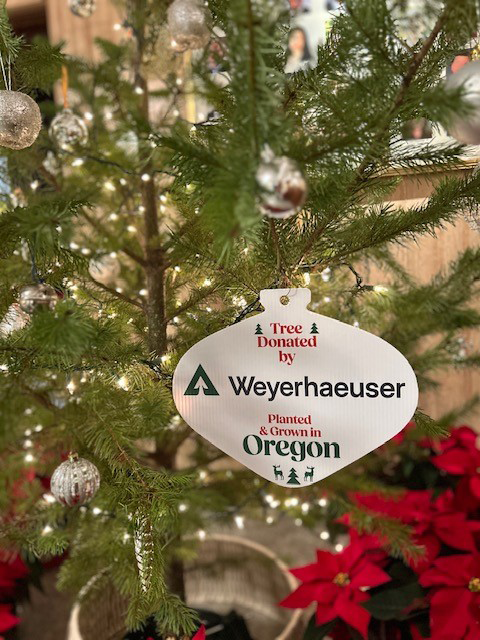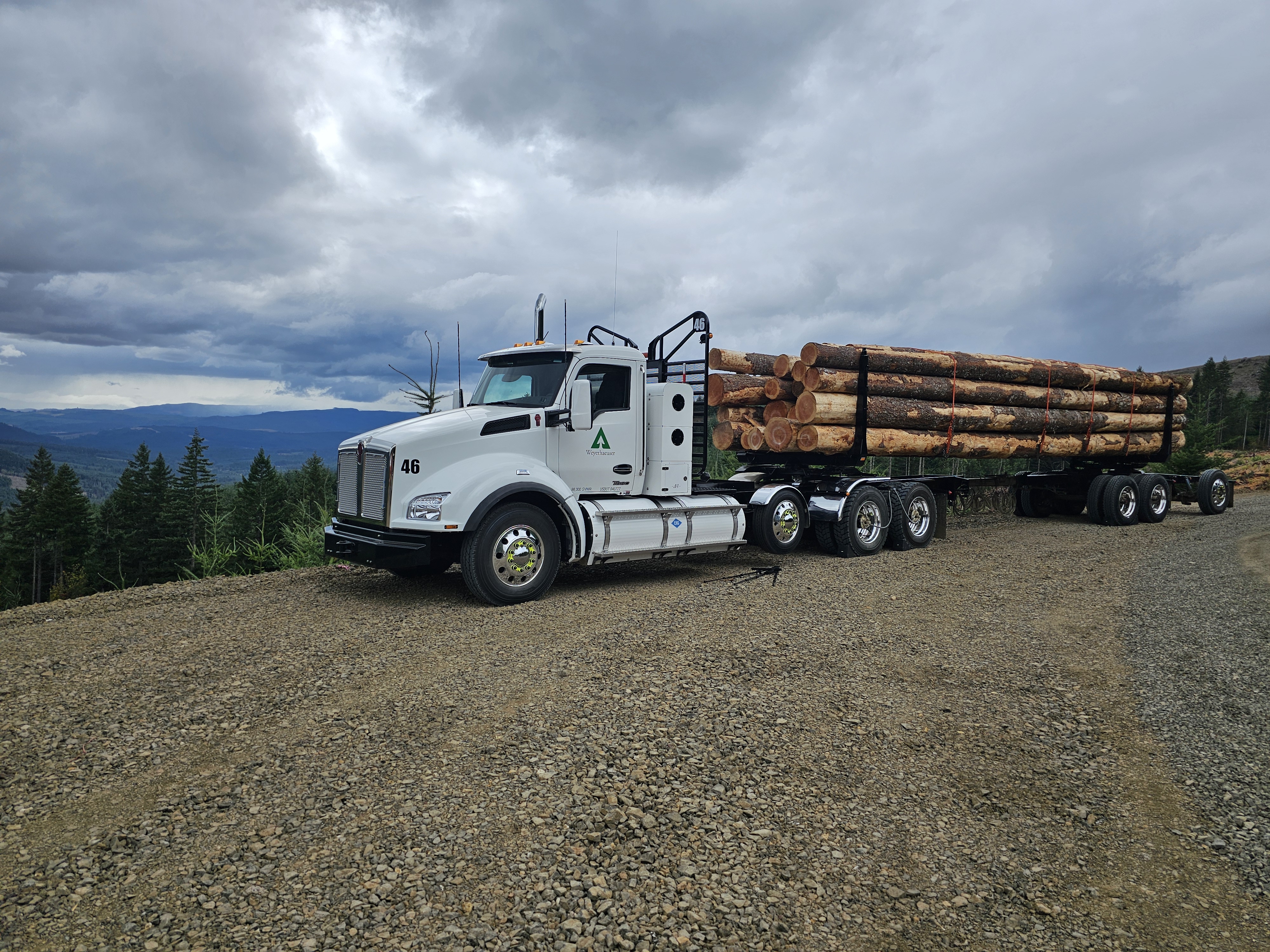
The Forest Service has created digital story maps focusing on the Riverside and Beachie Creek Fires. Both contain complete overviews of the fire, maps of affected areas and photo galleries.
Employees at our tree farms in Molalla and Lebanon, Oregon, are celebrating completion of wildfire reforestation efforts ahead of schedule following the Beachie Creek and Riverside Fires. Originally estimated to take at least four to five years, restoration at both locations wrapped up in fewer than four years with nearly 15 million seedlings planted, marking a significant achievement in local wildfire recovery.
The 2020 wildfire season was among the most destructive in Oregon's history. The Riverside Fire burned through approximately 132,000 acres, while the Beachie Creek Fire severely damaged183,000 acres. Our Snow Peak and Clackamas tree farms were directly affected, yet despite extensive damage, Weyerhaeuser’s foresters quickly took action to restore the local landscape and protect sensitive watersheds.
Reforestation efforts began just 33 days after the fires ended on the Clackamas tree farm located in Molalla. A major focus for both recovery sites was the replanting of sensitive streamside buffers and tributary connections, essential for protecting water quality and reducing erosion. Restoring these areas first helped to stabilize streambanks and support clean water for surrounding communities.
“This level of restoration in such a short time highlights the incredible dedication of our foresters,” says Mark Allsup, region forester. “Burn areas can be challenging to replant, and our teams worked diligently to rehabilitate these forests and watersheds so they can once again provide wildlife habitat and support clean air and water in our operating communities.”
At the Clackamas tree farm, planting wrapped up in late September 2024. In total, 24,415 acres were restored, with 8.3 million seedlings planted across the site. Similarly, at Weyerhaeuser’s Snow Peak tree farm in Lebanon, the team planted a total of 6.4 million seedlings, restoring 21,605 acres.
“We’re starting to see the areas that were reforested look like young, healthy forests again,” says Rudy Frazzini, forester at the Snow Peak tree farm. “That’s a tribute to all those involved in the recovery.”
The two projects totaled almost 50,000 acres restored and were completed in less than four years. It’s an immense achievement considering that in an average year, one tree farm typically plants 800,000 – 1 million seedlings.
“The reforestation effort was sort of like a jigsaw puzzle when we began,” says Will Burge, forester at the Clackamas Tree Farm. “From the start, it was a team effort to keep all our crews safe during the salvage operation with yarders and loggers on the hillside at the same time as the planting crew. The project would not have been possible without the work of many others, including our GIS department’s assistance with spray and planting maps, our contractor Mt. St. Helens Reforestation, and of course our Regeneration team, who was balancing internal and external customers.”
With the final seedlings now in the ground, both sites are entering the next phase of recovery, focusing on long-term care and monitoring to ensure these forests grow and thrive for generations.
“These fires are forever etched in my memory, and I remember the sense of solidarity that defined our response,” Mark says. “When the smoke cleared and the ash settled, we faced a challenge that seemed to bring out the best in our teams.”


